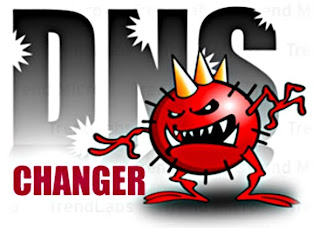
McAfee recently released a report that predicts potential online security threats for 2010. To summarize, the anti-virus and computer security company, which is based out of Santa Clara, California, sees an increase in threats from social networking sites, banking security, and bot nets. In addition, they see increases in attacks targeting users, businesses, and applications. However, the findings weren't all negative. McAfee says they expect an increase in law enforcement and its effectiveness in fighting cybercrime.
As social networking sites, such as Facebook and Twitter, become increasingly popular, they'll most likely become a breeding ground for cyber attacks. On top of the increased number, the attacks will be more sophisticated. Facebook users are particularly vulnerable due to the number of third party applications used. Games and other applications are popular and most people will trust an invitation from their friends without using caution. But that invitation could easily be malware or something else designed to harm your computer. There's really no way to protect yourself other than avoiding the third party apps such as quizzes and games.
URL shorteners such as bit.ly and tinyurl.com are also expected to become a target of cybercrime. These tie-in to social networking because most people use them to post links to their profiles. The websites shorten a normal URL into a smaller one that will fit in almost any space and is especially popular on Twitter, where you only have 140 characters to gets your message across. One major problem with these smaller URLs is that they can't be previewed, so clicking on one at random could lead you to somewhere you don't want to be. This makes it a very easy target for crooks.
Due to the popularity of Microsoft products, cyber criminals have been taking advantage of them for years. However, as programs such as Adobe Reader and Flash become more popular, McAfee expects they will become a bigger target, taking over the top "honor" from Microsoft. In 2009, Adobe Reader saw an increase of problems due to security holes, leading the company to take a more proactive approach to patching up problems.
Email attachments have always been a problem when it comes to spreading malware and that threat is expected to continue and even get bigger. The company expects an increase in specific targets when it comes to email, and those include journalists, corporations, and individual users who could easily be convinced to download an attachment that is hiding a Trojan or other bit of malware.
Other projected problems include banking Trojans. Normally used to get your financial information, McAfee expects them to become so advanced that they will start interrupting transactions and even withdrawing money from your accounts. 2009 already saw an increase in banking cybercrime, with many Trojans making their way past strong bank security. Botnets are also expected to be a threat. McAfee calls them a "leading infrastructure for cybercriminals" and says they are "used for actions from spamming to identity theft." While they are harder to track down due to their ability to move from computer to computer without a central base of operation, there has been some recent success in shutting them down.
Despite all the many threats, McAfee does project an increase in law enforcement's ability to track down cybercriminals. Even so, there are steps you should take to protect yourself. Purchasing security software and keeping it updated is very important and something everyone should do. Keeping your PC up-to-date with Microsoft patches that protect your operating system, office suite, and browser is also important. You should also be sure that you are aware of all the latest threats and realize what's at risk. Exercise caution when opening files or downloading applications.
Looking for Computer / PC Rental information? Visit the www.rentacomputer.com
PC Rental page for your short term business PC needs. Or see this link for a complete line of
Personal Computer Rentals.


 The FBI has warned hundreds of thousands of people that they could lose their internet connections in July. That is, of course, if they don't take steps to diagnose and disinfect their computers. The problem that these individuals are facing is related to malware known as DNSChanger, which was first discovered in 2007 and has since infected millions of computers around the world.
The FBI has warned hundreds of thousands of people that they could lose their internet connections in July. That is, of course, if they don't take steps to diagnose and disinfect their computers. The problem that these individuals are facing is related to malware known as DNSChanger, which was first discovered in 2007 and has since infected millions of computers around the world. 
